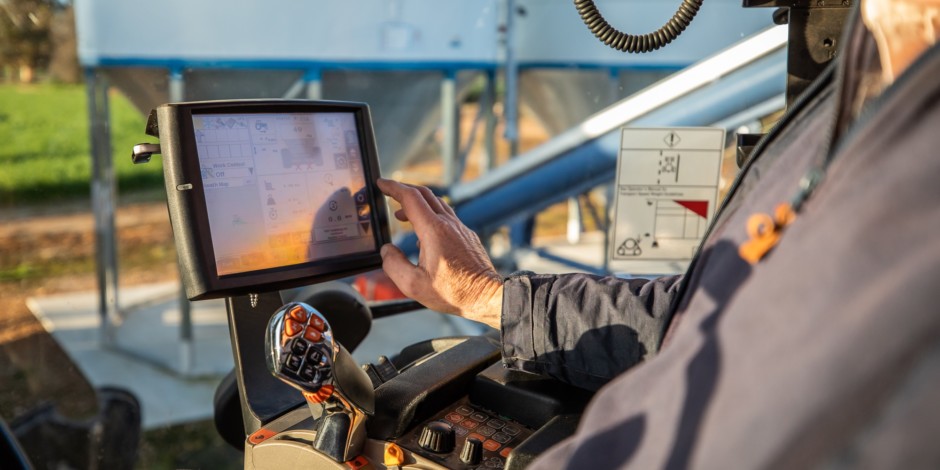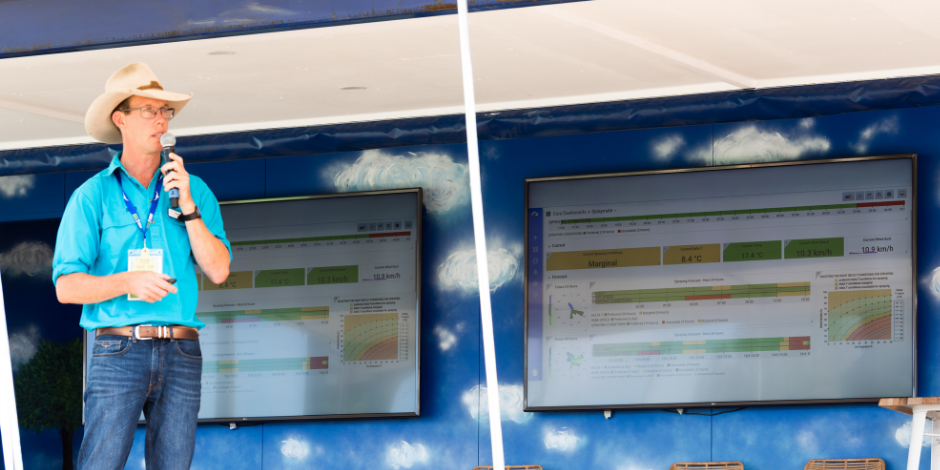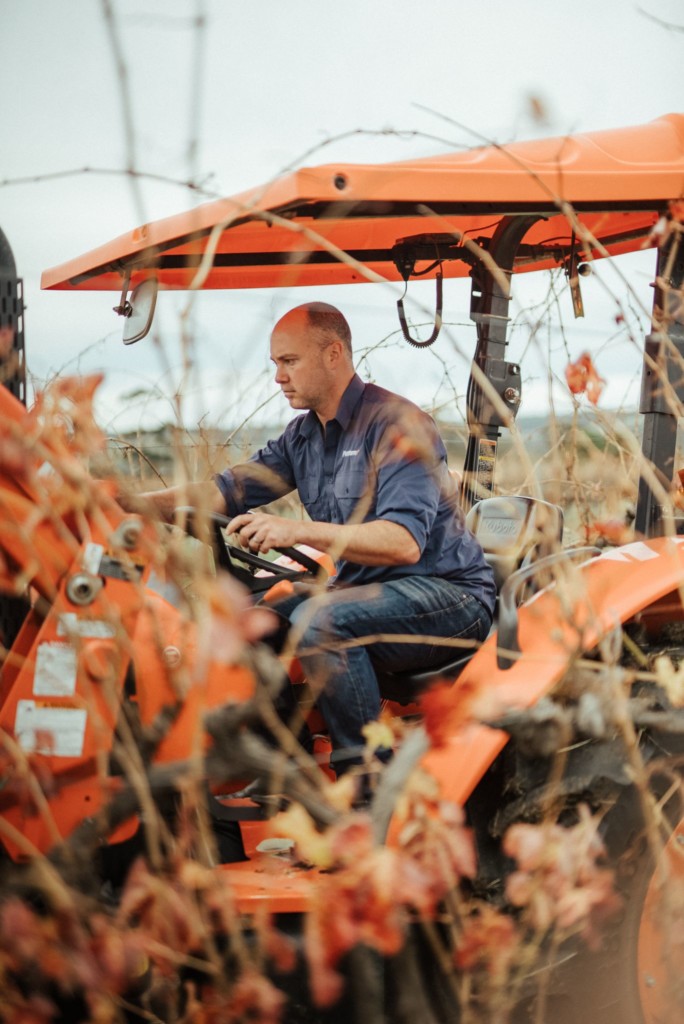Farm data and doing what’s right by the farmer
South Australian grape grower, agritech founder and industry leader, Oli Madgett explores the nuances of the Australian Farm Data Code, and how agriculture can harness its value, and empower farmers to share their data safely and promote agritech adoption.
 Photography by Jackie Cooper
Photography by Jackie Cooper
Enabling farm data to be frictionlessly shared between systems so it can deliver value for farmers without stifling the commercial viability of the agritech ecosystem – is a challenge that’s getting significant attention right now.
Projects such as the Australian AgriFood Data Exchange and the work being led in NZ around enabling technical data interoperability are key in driving this conversation.
With Australian agriculture going along the unmade track towards digital transformation, the Farm Data Code, developed by the National Farmers Federation (NFF) in consultation with industry, has been designed to assist both farmers and technology companies navigate this journey from a data governance perspective.
The objective of the code is to outline best practice principles in terms of collecting, using and sharing farm data in a way that can build trust and also drive innovation and deliver value back to farming communities.
The seven core principles of the Farm Data Code focus on transparency around how farm data is being collected, used and shared by technology service providers so that everything is upfront and honest, and farmers can therefore make an informed decision on whether they want to use the service. In summary, the principles cover:
- Transparent, clear and honest collection, use and sharing of farm data
- Fair and equitable use of farm data
- Ability to control and access Farm Data
- Documentation and Record Keeping
- Portability of Farm Data
- Keeping Farm Data Secure
- Compliance with National and International Laws
Agritech companies embracing the Farm Data Code
Andrea Koch, Chair of the NFF Farm Data Code Working Group highlights AgByte as an example of an agritech company that has built trust with its clients so that data can be shared for the good of the community. The South Australian agricultural sensor technology disruptor is sharing private on-farm weather data, either individually owned by primary producers or by community groups, generated from AgByte weather stations, to trigger Harvest Fire Danger Index alerts to help warn harvester drivers about fire risk conditions and deliver overall community safety benefits.
The NFF Farm Data Code is designed to act as a starting point for discussion between the farmer and the service provider about how data will be treated, in order to give producers legal assurances around how their data is going to be used, shared, stored and secured.

Pairtree CEO, Hamish Munro speaking to producers in the ‘Tech talk: Equipping farmers for the future’ session at Beef Week 2021. Photo by Rachael Lenehan.
Pairtree Intelligence is another agritech leader supporting industry adoption of greater on-farm data stewardship – and are one of the first companies to fully align with the voluntary Farm Data Code. Pairtree CEO, Hamish Munro used the Code as a starting point for their lawyers to develop their data standards and policies’ Terms & Conditions to ensure consistency with the Code. By leveraging the principles of the NFF Farm Data Code, Pairtree has created a simple overview of its data principles for farmers, to clearly articulate what they will not do with farmers’ data.
An example from Pairtree’s Terms:
Any data that you provide to us, or that a third party provides to use about you or your property, via a Pairtree Platform (for instance data relating to livestock numbers or crop volumes that you input into a Pairtree CORE dashboard, or that is collected and integrated into Pairtree CORE by a third party) will remain your property (not ours), and unless you specifically request it, we will never share your information and data with third parties. Pairtree Platforms are made for farmers by farmers and farmers who use Pairtree Platforms to manage their data and optimise their agricultural practices will always own and have control over the data generated from their property and their resources.
RELATED: Universal dashboard offers streamlined solution for farmers
Hamish stresses the importance of striking a balance around data governance not overly hampering innovation, with an example of users being able to share their private weather station data with remotely sensed crop health imagery, with this combined data becoming useful to deliver back to farmers localised crop disease modelling or reduced insurance premiums.
In Andrea Koch’s John Ralph winning essay, she highlights that farmers are generally very open to agreeing to share their data with third parties if there’s a strong enough value proposition for them, and highlights the challenges ahead of convincing farmers to pour their data into any central data lake with uncertain outcomes or clear initial benefits.
How to create value for producers using farm data
One of the technical challenges ahead is how to create value back for farmers without having to share sensitive details about the operation of their farm. Food Agility are focusing on the learnings from the Fintech industry and whether an approach like homomorphic encrypted analytics could be a solution, whereby two separately owned data sets are combined to create new insights without either party seeing the others’ underlying data.
Pairtree are also transitioning from a universal dashboard displaying all of a farmer’s key data in one place to more of a platform where it’s providing APIs for the agritech ecosystem and give the access keys to the farms so they can control who they share their data with. Pairtree’s farmer centric approach is starting to reap rewards with the recent $170,000 Accelerating Commercialisation Grant to roll out proof of concept pilots of their Farm Junction Point service in partnership with Syngenta ANZ.
RELATED: Pairtree and Syngenta partner to drive crop productivity and sustainability
An insightful piece from Matthew Pryor, Tenacious Ventures, recently explored the fact that in farming ‘the factory has no roof’ and this creates an opportunity for the tech industry to provide value back to farms without them needing to do a lot of the leg work, but it also has the potential to erode trust in technology service providers if this is not approached with openness and honesty.
I really enjoyed exploring this whole area with Andrea and Hamish, in the evokeAG. podcast covering farm data. Data governance is like one of those corner pieces of a jigsaw puzzle, that’s really hard to initially find, but once it’s in place it helps to bring the picture together for everyone.

Oli Madgett working at his family winery, Madgett’s Block in South Australia’s McLaren Vale region, where new technology is often tested. Photo by Solomon Scopazzi.
The NFF Farm Data Code is designed to be an evolving piece of work, and the Working Group are currently taking onboard feedback from across the industry as it goes through its next iteration of finalising a more formal process for agritech companies to be certified as being compliant with the code.
I think we could do well to take a lesson from Netflix’s five-word expenses policy ‘Act in Netflix’s best interests’, which is both intuitively understandable by all parties, and helps everyone to have a shared understanding of when actions do and don’t conform. We might need to add one more word and ‘Do what’s right by the farmer’, and if the agritech industry can align behind this simple principle to guide us forward along this unmade road, I think we’ll collectively go a long way.
Oli Madgett has joined the NFF Farm Data Code working group for the next iteration. If you’re interested in providing feedback to the NFF Farm Data Code or learning more, visit here.
Enjoyed this story? Want to learn more about the Asia Pacific region’s innovative agrifood tech ecosystem? Sign up for our newsletter here and receive fresh stories about global leaders, farmers, startups and innovators driving collaborative change.
